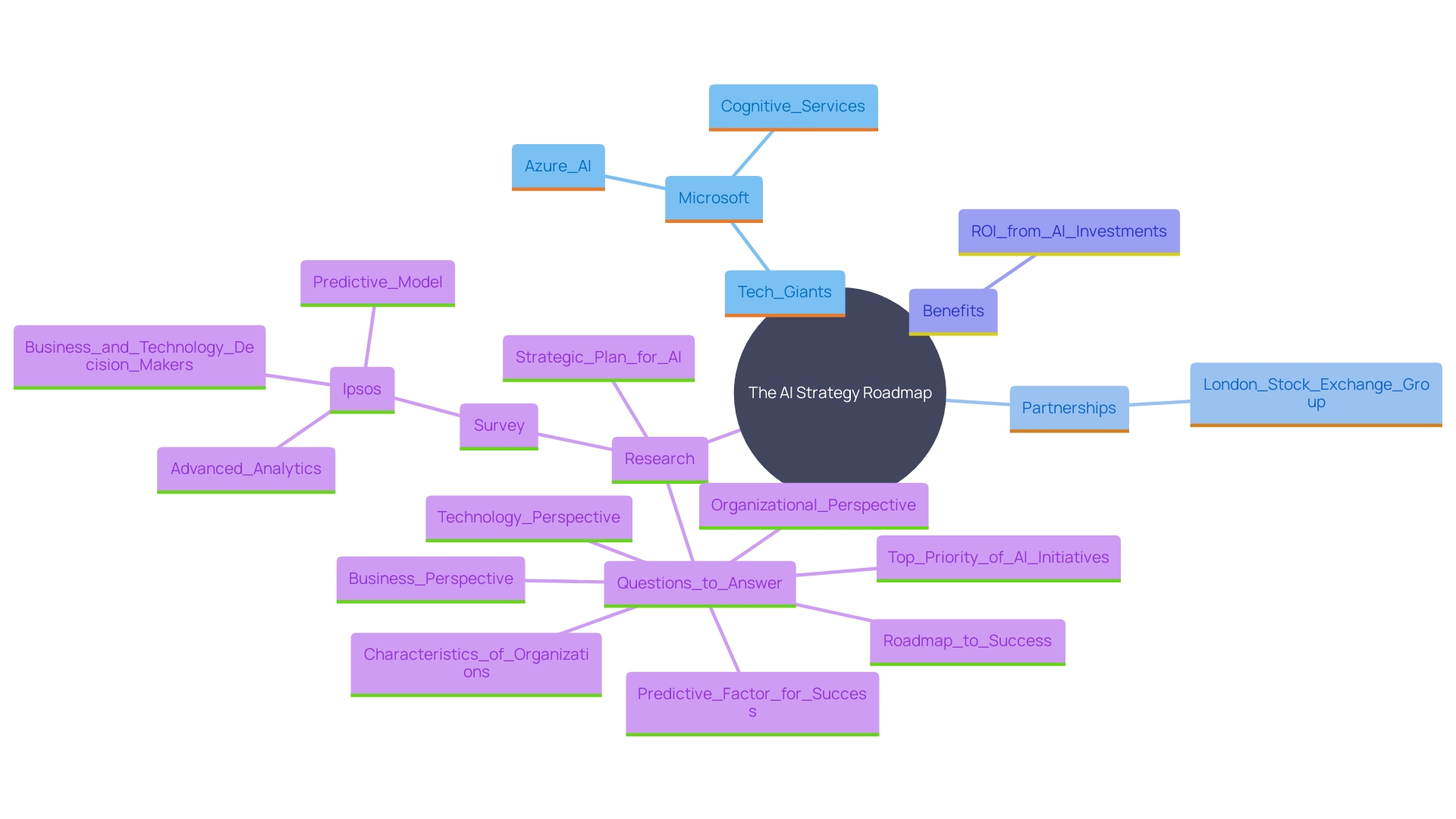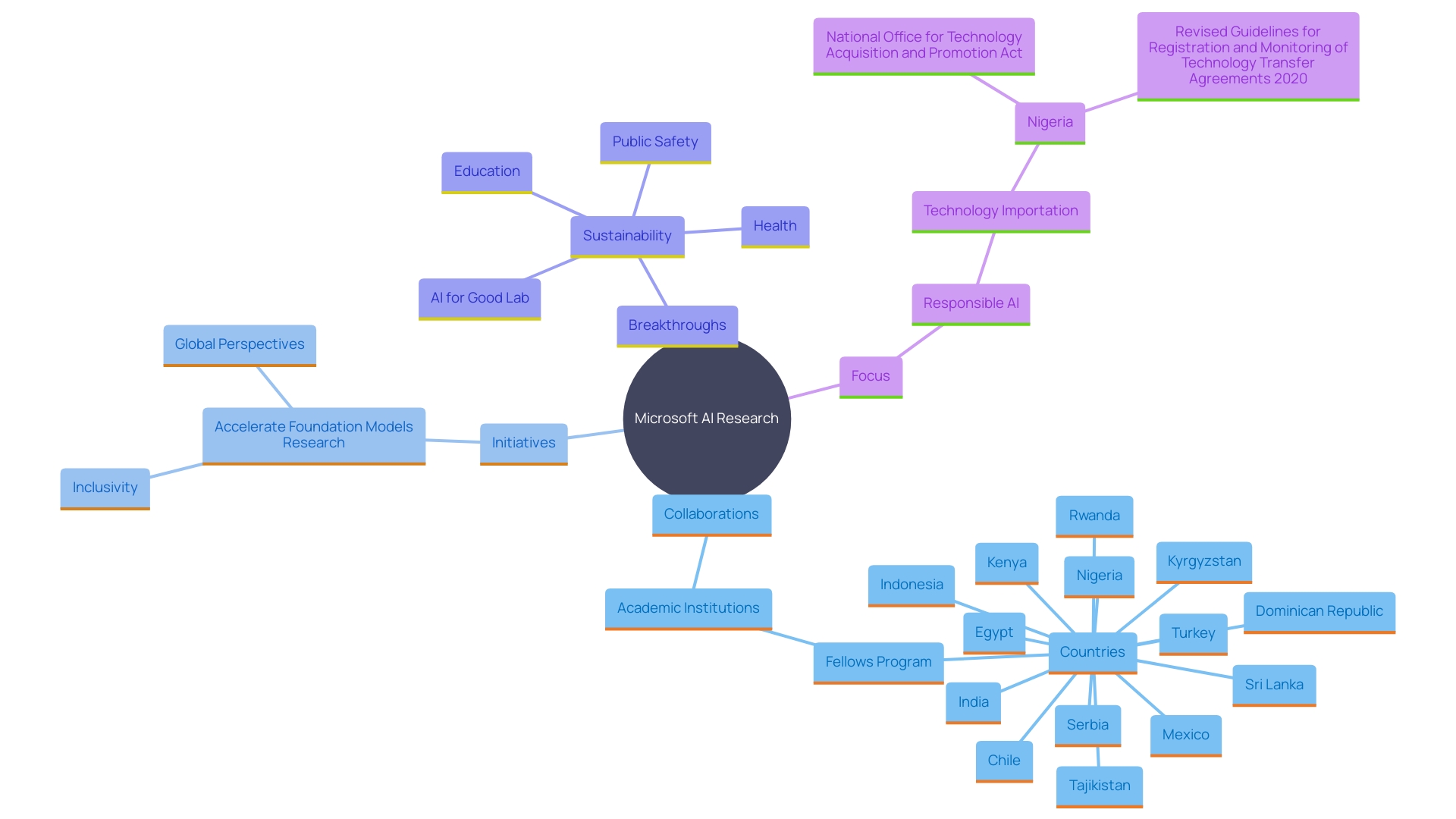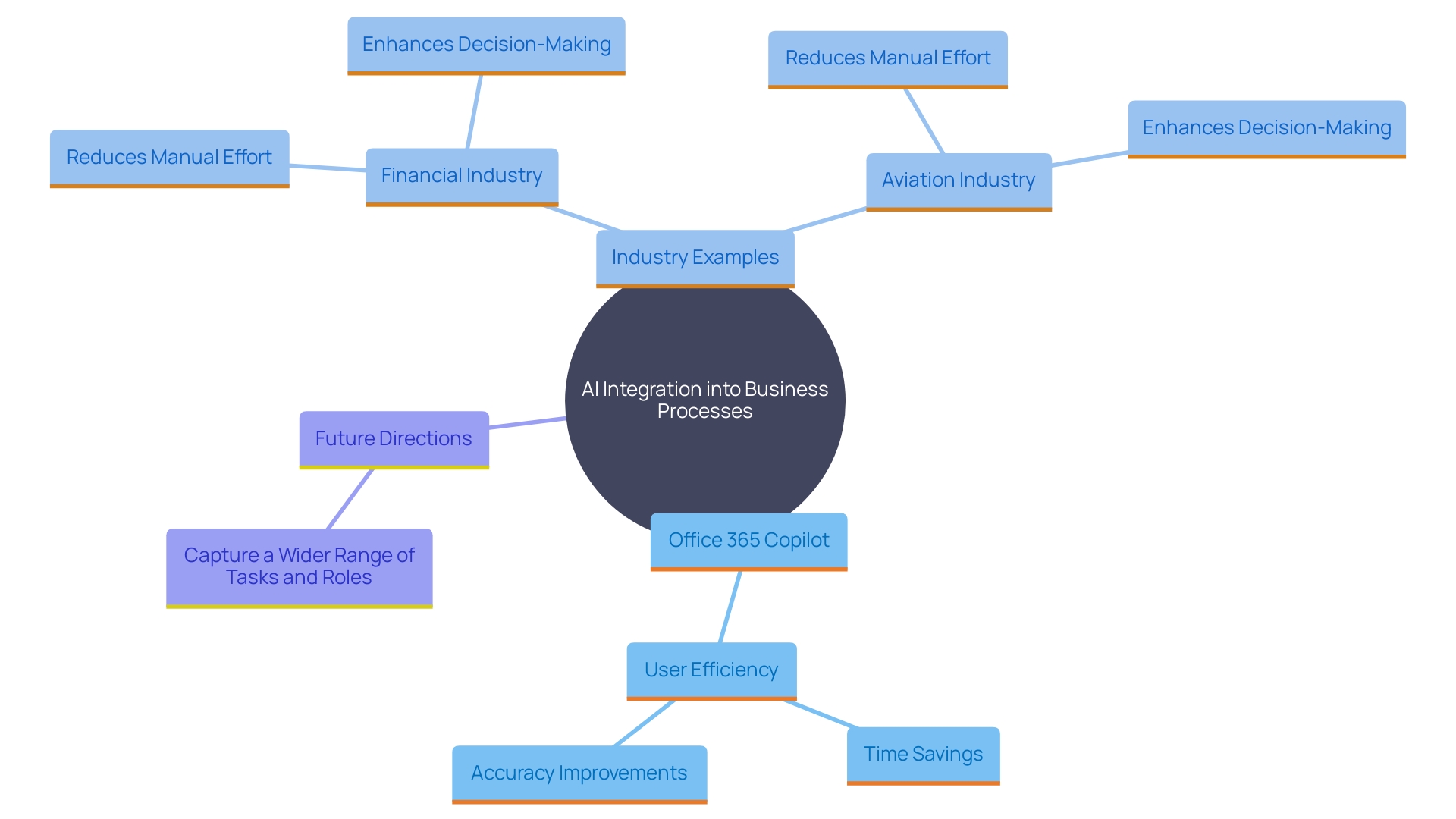Introduction
Artificial intelligence (AI) has become a cornerstone of modern technological advancement, and Microsoft stands at the forefront of this revolution. By leveraging both large and small language models, Microsoft has developed scalable AI solutions that cater to a wide range of operational needs. These models, capable of understanding and generating human-like text, are transforming industries by processing vast amounts of information and delivering smarter, more responsive systems.
The company’s strategic shift towards cost-effective small language models, like the renowned Phi-3, exemplifies Microsoft’s commitment to making AI more accessible and practical for diverse applications, including those with limited resources. This article delves into Microsoft’s innovative AI platform, groundbreaking research, and the impactful integration of AI in its products and services, demonstrating how these advancements are driving efficiency and productivity across various sectors.
AI at Scale: Leveraging Large Language Models
The company has made significant progress in utilizing large and small linguistic frameworks to improve its AI capabilities, ensuring a scalable solution for diverse operational needs. These systems are created to comprehend and produce human-like text, making them essential for various applications. By utilizing vast datasets and advanced algorithms, the company’s AI can process and analyze massive amounts of information, leading to smarter, more responsive systems that cater to user needs.
For example, Microsoft’s Phi-3 systems are renowned for being the most proficient and economical small linguistic frameworks currently accessible. ‘This transition towards compact linguistic frameworks (CLFs) is propelled by the necessity to reduce expenses and hardware demands, rendering AI more attainable and functional for diverse uses, including resource-limited settings such as mobile gadgets and integrated systems.’. A case study revealed that smaller structures could achieve competitive performance on specific tasks while using significantly fewer computational resources than their larger counterparts.
This approach aligns with the industry’s trend towards specialized systems designed for particular tasks, rather than the one-size-fits-all strategy of large language systems (Loss). As the investments from the technology giant in SLMs demonstrate, these smaller systems can offer more effective and focused responses for particular tasks, such as examining consumer behavior for targeted advertising. The focus on smaller versions is further backed by findings that indicate AI systems’ abilities increase with the number of parameters, but the practical advantages of smaller versions cannot be ignored.
The dedication to the advancement of both large and small language systems suggests a future where AI solutions can be customized to meet the distinct needs of different organizations, improving productivity and operational effectiveness across various fields.
Microsoft’s AI Platform and Innovations
The company’s commitment to enhancing AI technology is evident in its strong platform that effortlessly incorporates a range of AI tools and services. This comprehensive platform empowers developers and businesses to efficiently build, train, and deploy models, transforming the way they operate. With innovations like Azure AI and Cognitive Services, users can effortlessly incorporate AI into their applications, democratizing access to advanced technology.
For instance, Ally leveraged the Azure OpenAI Service to develop robust, reliable, and secure AI capabilities. Scott Richardson, Chief Information Officer of Enterprise Data and Analytics at Ally, emphasizes, “The massive investment made by the tech giant in OpenAI helped move things forward, but the key thing is that they really understand our need to implement robust, reliable, and secure capabilities.” Ally’s collaborative approach, involving business, technical, and customer service teams, ensured that their AI offerings were fine-tuned to meet specific needs, demonstrating the transformative potential of these AI tools.
Furthermore, the tech giant’s strategic alliance with the London Stock Exchange Group (LSEG) exemplifies the significant impact of AI in reshaping industries. By merging the horizontal software strengths of the tech giant with LSEG’s financial market infrastructure and analytics, they provide AI-driven offerings designed to fulfill the unique requirements of financial services organizations. This collaboration enables customers to realize increased value faster, with streamlined workflows, ultimately generating reliable, trusted, and relevant insights.
Investing in AI tools such as 365 Copilot has demonstrated significant benefits for companies. According to a Forrester study, businesses can experience a return on investment (ROI) ranging from 132% to 353% over three years. Early adopters have already seen transformative impacts, highlighting the strategic importance of AI in driving long-term growth and efficiency.
As the tech giant continues to innovate, it remains committed to safe and responsible AI development. This commitment ensures that organizations of all sizes can harness the power of AI, overcoming challenges like talent shortages and complex software development needs. By embracing AI and low-code solutions, businesses can boost productivity, enhance security, and remain competitive in an increasingly data-driven world.

Advancements in AI Research and Model Development
Microsoft’s ongoing research plays a crucial role in advancing AI technology, continuously pushing the boundaries of what AI can achieve. The company invests significantly in developing new designs that enhance reasoning capabilities and contextual understanding. For instance, the InsightPilot system simplifies data exploration by leveraging large language frameworks to streamline the analysis process, demonstrating the practical applications of AI in data-driven decision-making.
Collaboration with academic institutions and industry leaders further amplifies the company’s research efforts. The Accelerate Foundation Models Research (AFMR) initiative, for example, supports over 200 projects across universities globally, providing access to powerful foundation models via Azure. This initiative aims to align AI with human goals, values, and preferences while ensuring rapid progress through innovative evaluation methods. As Peter Lee, Corporate Vice President of Microsoft Research & Incubations, highlights, “A vibrant and diverse research ecosystem is essential to realizing the promise of AI to benefit each individual, organization, and society worldwide.”
These collaborations have led to remarkable breakthroughs, such as the development of an AI-powered pipeline in partnership with Pacific Northwest National Laboratories, which identified a novel battery storage solution that can replace up to 70% of lithium in batteries. This advancement showcases AI’s potential in discovering new materials for sustainability and other fields.
Furthermore, the company’s dedication to responsible AI research is clear in their continuous efforts to improve transparency and safety. Recent work includes exploring the intersection of AI and society, transforming healthcare, and evolving foundational AI technologies. Chris Bishop, Technical Fellow and Director of Research AI4Science, emphasizes the transformative impact of AI on scientific discovery, noting that it is through understanding the natural world and applying technology that humanity has achieved significant progress.
These advancements not only improve existing products but also pave the way for unforeseen applications of AI, reinforcing the company’s position at the forefront of AI innovation.

AI Applications in Microsoft Products and Services
The company has revolutionized its product suite by embedding AI across Office 365 and Dynamics 365, transforming how businesses operate. Through features like intelligent search, automated insights, and natural language processing, AI enhances user experience and drives productivity. For instance, the introduction of Copilot for 365 integrates generative AI features into applications such as Word, Excel, PowerPoint, Outlook, and Teams, significantly reducing the time and energy required for numerous routine tasks. A survey of 297 early adopters revealed that the most efficient users saved up to 30 minutes per day, equating to 10 hours a month.
The impact of AI is evident across various industries. In the financial sector, Ally Financial utilizes Azure and Azure OpenAI Service to automate manual tasks for its customer service associates, reducing post-call effort by 30% and capturing critical information with over 85% accuracy. Similarly, Amadeus, a worldwide travel technology provider, deployed Copilot for Office 365 to empower its workforce, starting with early adoption among a subset of employees.
Moreover, the aviation industry is experiencing a transformation driven by generative AI. Research indicates that AI-powered decision-making can reduce flight delays by up to 35%, enhancing safety and efficiency for travelers and staff. These advancements illustrate the practical benefits of AI, making it an indispensable ally in improving operational processes and elevating productivity across sectors.

Future Directions and Impact of AI Innovations
Looking ahead, the company is poised to redefine the landscape of AI with its innovative strategies. The focus is not only on enhancing existing technologies but also on exploring new paradigms such as ethical AI and responsible AI deployment. By prioritizing transparency and user trust, the company aims to shape a future where AI serves as a positive force for societal advancement. This forward-thinking approach positions Microsoft as a leader in the responsible evolution of AI, ensuring that its innovations contribute meaningfully to businesses and society.
Conclusion
Microsoft’s integration of AI has significantly transformed various sectors by utilizing both large and small language models. This focus on cost-effective small language models, such as the Phi-3, illustrates the commitment to making advanced AI accessible, particularly in resource-constrained environments. Organizations can customize AI applications to meet specific needs, resulting in smarter and more responsive systems.
The comprehensive AI platform, featuring innovations like Azure AI and Microsoft Cognitive Services, empowers businesses to leverage AI effectively. Collaborations with partners such as Ally and the London Stock Exchange Group demonstrate the tangible benefits of these technologies, yielding substantial returns on investment and enhanced operational workflows. A commitment to responsible AI development ensures that advancements are not only impactful but also aligned with ethical standards.
Research initiatives like the Accelerate Foundation Models Research underscore Microsoft’s dedication to advancing AI capabilities through partnerships with academic institutions and industry leaders. This collaboration drives breakthroughs that address real-world challenges while maintaining a focus on transparency and ethical considerations.
As Microsoft continues to innovate, the potential for AI to reshape industries and drive long-term growth is significant. The integration of AI across Microsoft products enhances user experiences and streamlines processes, setting a standard for technology that serves the greater good. With a forward-looking approach, Microsoft is leading the AI revolution and ensuring that its innovations contribute meaningfully to businesses and society.

